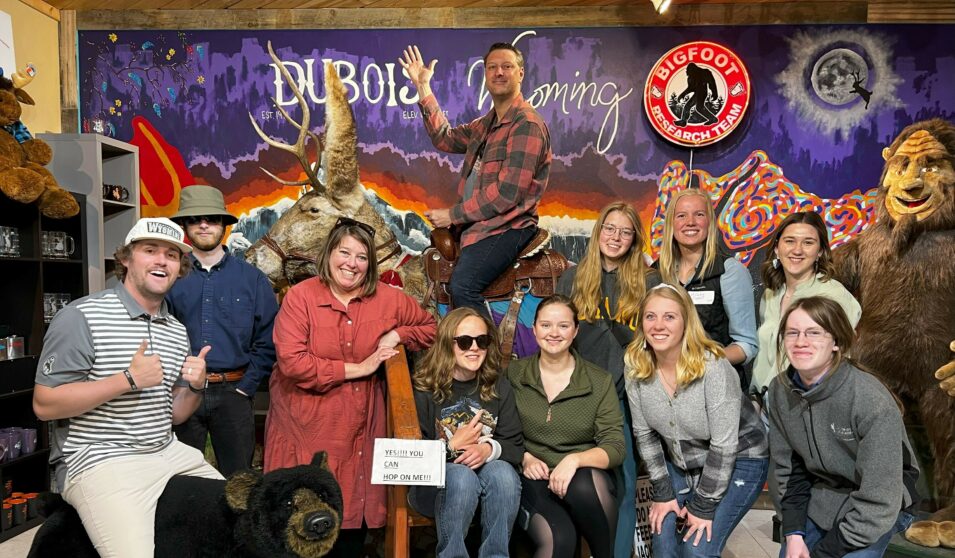The intentional recruitment, preparation, and retention of rural educators is essential to creating thriving rural school communities. Rural Schools Collaborative has supported such initiatives, which we call Rural Teacher Corps, since our founding. In 2021, RSC was honored to partner with an anonymous donor to create the Catalyst Initiative Grant Program, an effort that offers flexible planning grants to organizational partners aspiring to launch their own Rural Teacher Corps program. The University of Wyoming participated in the inaugural Catalyst Initiative Grant cohort in partnership with Teton Science Schools, our Northern Rockies Hub partner. The following article by Elizabeth Sampson at The Wyoming Truth chronicles the experiences of rural teachers-to-be benefiting from the good work of our partners at the University of Wyoming and Teton Science Schools cultivated through the Catalyst opportunity.
LARAMIE, WY -- June 8th, 2023
By Elizabeth Sampson, The Wyoming Truth
Christian Pellatz grew up 10 miles outside the unincorporated community of Bill, Wyoming. Unofficial population: 11.
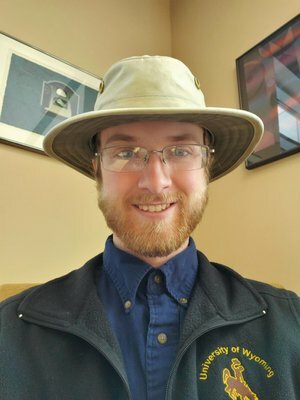
He attended Dry Creek Elementary School, a rural two-room school through 8th grade, with one other student in his class through fifth grade; he was the only student in his class in the sixth through eighth grades.
Like his peers from Bill, Pellatz rode a bus about 35 miles each morning to get to Douglas High School in the comparatively large town of Douglas. Population: 6,351.
So Pellatz, 21, knows what it means to be rural—and what a rural school experience is like. That’s why he joined the inaugural cohort of the University of Wyoming’s Rural Teacher Corps (RTC): He wants to deploy his knowledge and teach in a rural school like the one in which he grew up.
“With only one to three people per grade level, the content and delivery really matched the students and progressed at our pace,” recalled Pellatz, a rising senior elementary education major who secured a student teaching position for Spring 2024 at Moss Agate Rural School in Converse County. “We were able to speed up and slow down as needed, change up learning methods and pull in older peers to help give us a different way to think about what we were learning.”
“As we get older, many of us also become quite skilled at self-education, able to be given material, learn it independently or in small groups, and only check in with the teacher to check for understanding and address any challenges,” he added.
Pellatz said spending all day with such a small group of people could be challenging for some students, especially those who had moved to the community from a larger school system.
“I would like to capitalize upon the benefits and address the negatives,” he said.
Finding the Right Fit
With a nationwide teacher shortage and a rural teacher shortage in particular, the goal of the Corps is to prepare pre-service teachers for a career in rural education. By connecting education majors with rural educators, the program exposes participants to the unique challenges they may face, as well as provide guidance for how to succeed.
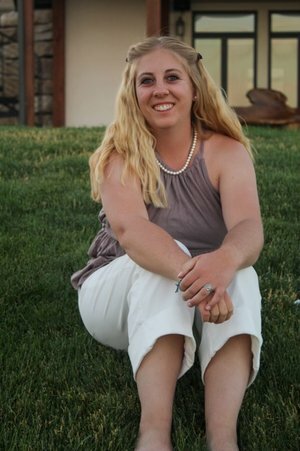
In its inaugural year, the Corps had 12 members—some from Wyoming and others from out-of-state. Half plan to pursue careers in elementary education, while half intend to teach at the secondary level. Participants worked with eight mentor teachers from rural school districts across Wyoming.
Each Corps member selected one mentor teacher to interview, and at the April monthly meeting, the mentor teachers served on a panel where they answered any questions.
Alison Mercier, UW assistant professor of elementary science education, and Leslie Cook, head of professional learning at the Teacher Learning Center of the Teton Science Schools, led the first-year cohort. They hope participants can rely on the connections they made with rural educators — a network of professional support — as they head into their first classroom.
“One of the students said, ‘I didn’t realize until we all started getting together that so many people were interested in rural education. I thought I was the only one,’” Mercier said.
Bailey Iacovetto, 21, of Steamboat Springs, Colorado, is one of those students. She grew up on a working cattle ranch and is now double-majoring in agriculture education and agriculture communications.
When Iacovetto first heard about the Corps, she knew it would be a great fit because she aspires to be an ag teacher in a tiny town.
She graduated with a class of 24 students, but being part of the Corps showed her that every rural school is unique in how it educates students. She said the Corps visited a small school near Jackson in Victor, Idaho where students engage almost exclusively in hands-on learning.
“Their recess was based on the interests of the students, and the teachers called it ‘risky play,’” Iacovetto said. “If they wanted a swing set, they built in themselves. Or if they wanted a spider web to climb on, the classes would build them.”
Wisdom to Spare
Corps members met monthly to discuss topics in the book “Teaching in Rural Places” by Amy Price Azano, which led to discussions about situations they may encounter on the job.
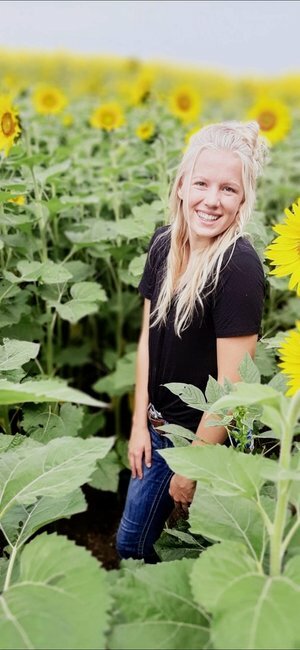
“Those issues on the forefront of their mind [are]: How do they find people to collaborate with if they are the only science teacher in the area? What is it like to come into a small community either for student teaching or a teaching job if you are coming in from the outside?” said Mercier.
Simply defining what constitutes a rural school elicited a variety of perspectives among the cohort.
“Some consider a school of 50 or 60 to be rural,” Mercier said. “Some say, ‘That has a lot of students. My school had five.’ Sharing those experiences, and working together to define what we consider as rural, [we saw] how the idea and definition of rural can change and be really different even within Wyoming.”
For Corps member Holly Qualm, 21, of Buffalo, visiting with mentor teachers reinforced her goal to become a rural teacher and pointed out some advantages over teaching in larger communities.
“One thing my mentor teacher touched on is a wider range of flexibility for teaching your students in a more emergent curriculum style—allowing the students’ interests to connect them to place and to use place as a driver for their learning,” Qualm said. “Students that come from a large agriculture background, you can really use that to drive certain science standards…and make learning more meaningful for students. For me that freedom felt refreshing.”
Mentor teachers encouraged participants to find ways to connect with their new schools and communities.
“The rural school really seems to be kind of the community hub, so for teachers to be a part of that you can’t be disconnected,” Qualm said. Connecting, she noted, can be as simple as running the concession stand at a Friday night football game or hosting community events at the school for students and parents.
For example, Qualm and the other Corps members hosted a STEM night for K-6 students at Rock River Elementary near Laramie. The Corps members collaborated with the school’s teachers to facilitate STEM stations — like making parachutes — and socialized with students and families during a shared dinner.
“I believe having that community gathering that was centered around an interest of the students…really connected people and brought the community together in a gym that serves the little town of Rock River quite well,” Qualm said. “I would love to do something like that in the future.”
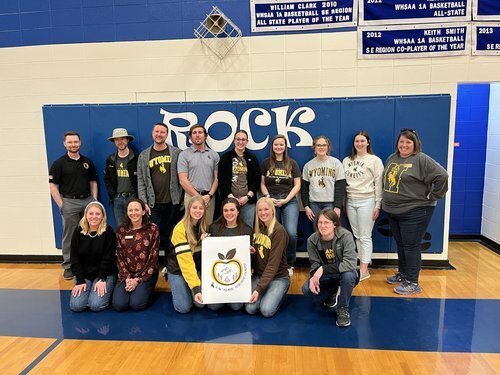
As leaders of the Rural Teacher Corps look ahead to next year, they are securing funding for both the new cohort and a second-year program for this year’s participants from the UW College of Education and the George B. Storer Foundation. Mercier said there will be 16 Corps members across the two cohorts in the fall, and each one will receive a $1,500 stipend.
“Our numbers are small, and it’s a big and challenging problem,” Cook said. “I think, in reality, over a few years we hope our program can be helping to prepare, recruit and retain rural teachers” to help address the shortage statewide.
Thank you to Elizabeth Sampson and The Wyoming Truth for permitting us to reshare this article, and to Leslie Cook, Alison Mercier, and their students for their hard work to strengthen rural communities in Wyoming.

